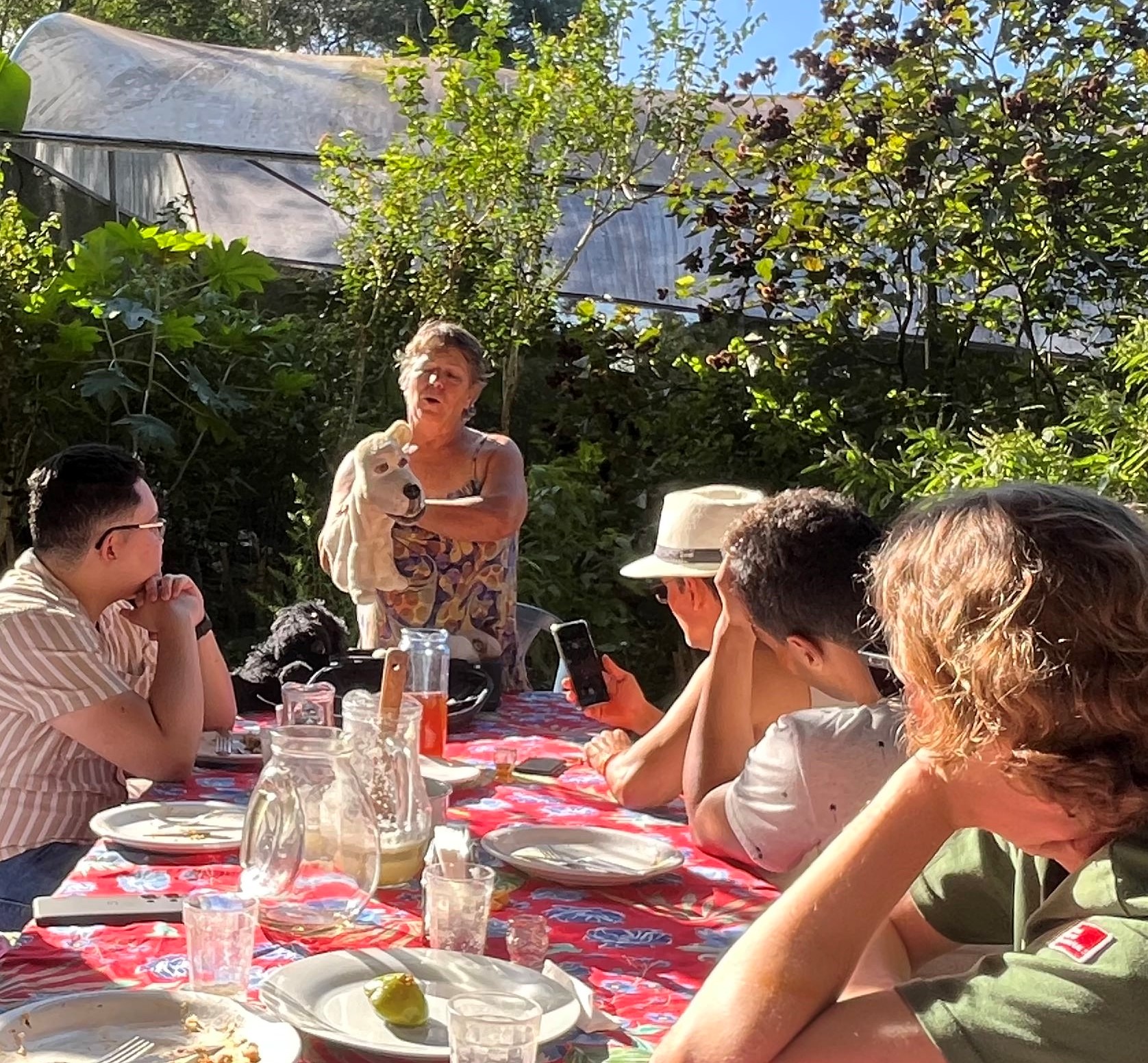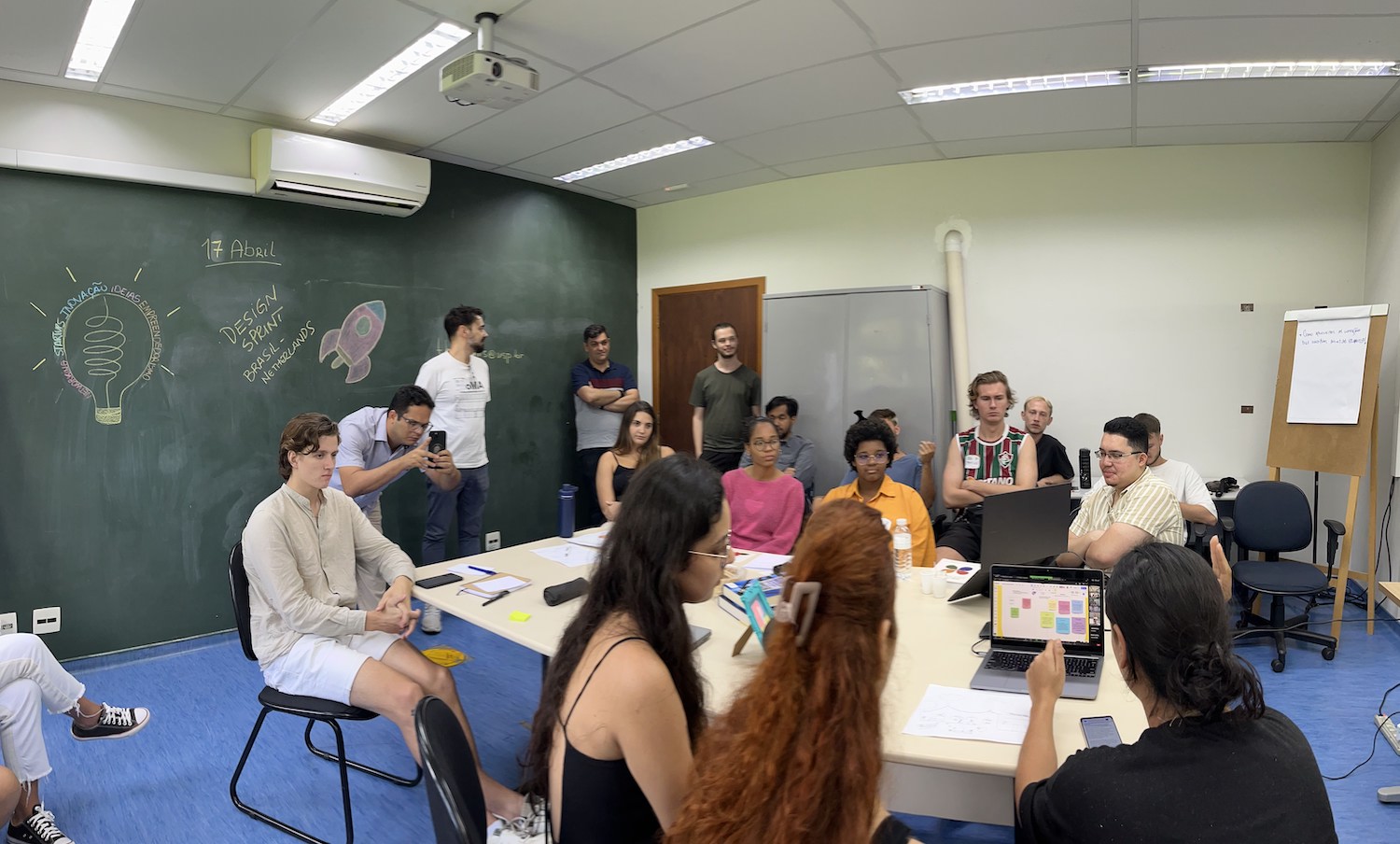Fostering education initiatives in an international environment
Dutch-Brazilian experiences

The School of Arts, Sciences and Humanities, at the University of São Paulo (EACH-USP), is one of the founding hubs of the World Leisure Centers of Excellence (WLCE) network. With 4,400 students and over 250 professors, EACH-USP is about to celebrate its 20th anniversary (2005-2025), but it is part of one of the most influential universities in Latin America: USP was founded in 1934 and, today, is ranked at position 85 at QS World University Ranking. The creation of the new campus brought innovative and, in some cases, unprecedented focuses to the undergrad environment, including marketing, public policies management, textile & fashion and, of course, leisure and tourism programmes. Though tourism is a traditional academic pathway in Brazil (the first undergraduate programme opened in 1974), EACH was a pioneer in combining leisure and tourism topics into a single programme, enhancing an integrated approach to both fields.
Thiago Allis is Associate Professor of Leisure and Tourism, at the School of Arts, Sciences and Humanities, at the University of São Paulo (EACH-USP).
Being one of the most renowned universities in Latin America, USP has always been highly internationalised. And this is not different at EACH: to date, almost 50 agreements are running, covering mobility (students, professors, researchers, staff), joint research schemes and organisation of academic and scientific events. These agreements seek to encourage undergraduate international mobility, despite funding limitations, language barriers, cultural differences and institutional contrasts. Besides stimulating students to go abroad, another strategy is to bring international students to Brazil, as a way to foster ‘internationalisation at home’ - and the experience to be described further on illustrates such an initiative.
Academic internationalisation: challenges and inequalities
Academic internationalisation is more than mobility of students or any academic staff: it is about creating a vibrant and organic environment for cross-cultural exchange and cooperative learning between internal and external members of the academic community. When it comes to real projects, connecting diverse contexts and contrasting backgrounds is even more challenging.
EACH and BUas are institutionally connected by a mobility agreement from 2022, aiming at creating opportunities for students to circulate, meet and expand their academic and life repertoires. The relationships between both institutes dates back to 2017 though, when EACH was one of the organisers of the World Leisure Congress, held in São Paulo. Despite funding limitations and language barriers, since then, students and professors from EACH and BUas have spent short or longer stays at the partner institute. One of these situations was the recent Digital Learning Festival, held simultaneously in São Paulo and in Breda, as well as in the virtual space. This is, indeed, a milestone in a long-term cooperation process, an achievement of continuous and organic entanglements between both institutions. Let's learn a bit more about this initiative.
Digital Learning Festival Brazil-Netherlands
Being part of the WLO network - in particular, as WLCE - makes things a bit more enthusiastic, either because we are pushed to deliver useful and inspiring results to the members or, on the other hand, because we assume beforehand that leisure (and tourism) are valued in multiple ways in the seine of that organisation. In this case, two WLCEs (EACH and BUas) have been, systematically, cooperating for several years; so putting a ‘Digital Learning Festival’ forward was a relevant output covering internationalisation, with intercultural literacy and transdisciplinarity as key topics. The event has been designed and organised in partnership with Celiane Camargo-Borges, based at Academy for Leisure & Events at BUas.
When it comes to real projects, connecting diverse contexts and contrasting backgrounds is challenging.
From 16 to 18 April 2024, dozens of students from EACH-USP and BUas attended sessions and took part in a field trip, having the opportunity to grasp how both institutes are working together and, more importantly, can do it even better. One of the most inspirational achievements was, with no room for doubt, a Design Sprint combining 20 students at both ends, debating and coming up with responses to the following question: How emerging technologies and knowledge (‘saberes’) might contribute to the design of smart(er) universities? They were accompanied by skilled mentors and, working in two groups (mixing Brazilian and international students, both online and in person), delivered creative proposals for commissioners in Breda (Innovation Square) as well as in Brazil (Habits Incubadora).
But what lies underneath and should not escape from our consciousness as scholars committed to doing our best as members of an academic international network?
Mobility justice
The concept of ‘mobility justice’, coined by the sociologist Mimi Sheller, is key to discuss, promote and transform internationalisation principles, policies and practices. Based on the idea of ‘mobility turn’ that emerged in social sciences in the beginning of the 21st century, the notion of a ‘mobilities paradigm’ claims that "how, when, and where people, goods, and capital move is, in all respects, a political question" (Sheller, 2018, p. xii). If trajectories, pace and experiences can be differently performed by different individuals (say, when in academic mobility or, when, they are hindered from doing so), one has to assume that uneven mobilities are the rule - and not the exception.

This and other issues were under debate during the ‘Sustainability Transitions in Education and Research’ session of the Digital Learning Festival. With an audience comprising Brazilian and international students, professors and researchers, it becomes imperative to state that when addressing the challenges of sustainability, and similarly for academic internationalisation, the ‘departure point’ may be of greater significance than the ‘arrival point’. This implies that from a political perspective, we must understand how to learn from local issues to create a global impact. If glocalisation is a must to discuss learning communities, perhaps we should be open to take (real!) advantage of diverse points of view, assuming that different ‘departure points’ can teach us collectively based on heterogeneity.
Luckily, the interactions between students and professors at EACH and BUas, in person and online, significantly fostered network building - especially among students. If mobility is an asset unevenly distributed, the more younger professionals expand their networks, the longer their scope of (education, academic, professional, personal) possibilities in the future.
If mobility is an asset unevenly distributed, the more younger professionals expand their networks, the longer their scope of possibilities in the future.
What is the future?
In his last book, John Urry, one of the gurus of mobilities studies from a humanist lens, was concerned on how to decarbonise society in a post-petroleum economy. In fact, the more the society became mobile, the more opportunities arose, though the side effects followed (social inequalities, environmental destruction, emissions and garbage skyrocketing, to name a few). This is, of course, one of the inescapable challenges of our time. In that vein, he was not only questioning environmental issues strictly from the biological lenses: more importantly, he was concerned at how to make society viable not only environmentally, but less unequally. Departing from this point and assuming that future scholars and professionals - today’s students - should be encouraged to expand their repertoire via international interactions, how to tackle (social, gender, race) inequalities and, on the same level of responsibility, embrace sustainability challenges in all dimensions?
From the perspective of USP, we are witnessing relevant changes in the ethnic, social and economic profile of students, bringing additional challenges - but also the richest opportunities - to foster new approaches to academic internationalisation. In touch with other WLCE networks - as well as numerous academic partners around the world - we truly believe that the combination of curiosity, academic capacity and a sense for a communal future will be driving forces to deliver better and sustainable solutions not only for leisure and tourism domains, but for many other sectors of life.
Sources
- Sheller, M. (2018). Mobility justice: the politics of movement in an age of extremes. Verso.
- Urry, J. (2016). What is the future. Polity.


































































